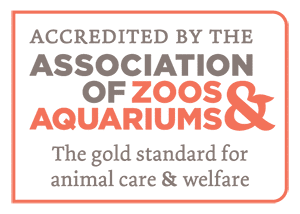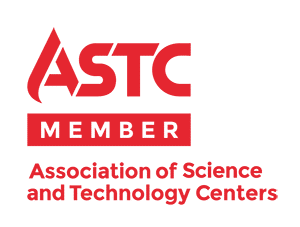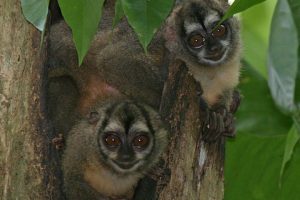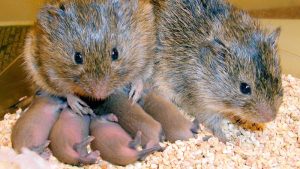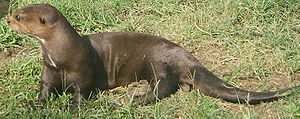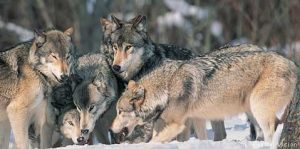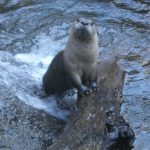Blog
Wildlife Devotion
There are a few animal species that display behaviors that look similar to what humans might call love. 3-5% of mammals could be considered monogamous, possibly because multiple parents are needed to ensure the survival of offspring.
Owl monkeys take a year to get acquainted before mating, then exhibit behavior that researchers think may illustrate a type of emotional bond similar to love in humans. These tiny tree dwellers stay faithfully together as long as possible. Baby owl monkeys rely on mom for milk but on dad for childcare.
When the modest prairie vole finds his perfect match, the male seems to experience a physical cognitive change. Before choosing a mate, all females seem the same to a male prairie vole. Once paired, the male shows a clear preference for a specific female, a change that researchers suspect is caused by brain hormones producing a sense of reward when exposed to that female’s scent.
The South American giant river otter is 6 foot long and a member of the weasel family. Giant river otters live as families that include the monogamous parents and their offspring from multiple breeding seasons. After ten months, the babies are as large as the parents. Today there are only a few thousand giant river otters left in the wild.
Wolves live in packs of relatives that include an alpha male and female and their older offspring who help raise the newest pups. The alpha male and female behave as the parents of the pack and younger wolves may eventually leave to form their own pack. Family members are loyal and the entire pack behaves like a family, even seeming to mourn when a pack member dies.
Join the CuriOdyssey Community
LOCATION
1651 Coyote Point Drive
San Mateo, CA 94401
Ohlone Land Acknowledgement
650-342-7755
info@curiodyssey.org
CuriOdyssey is a 501(c)(3) non-profit, Tax ID 94-1262434
